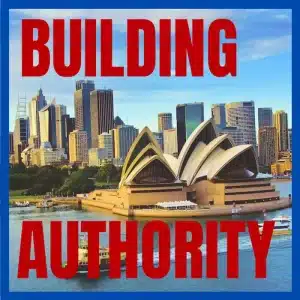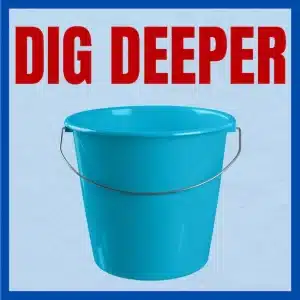How to Define Your Expertise
Being able to define your expertise and your strengths clearly and simply is super important for you to make good choices about what to focus on. Here we discuss how to define your expertise and the key to developing it.
Previously we reviewed Rework by Jason Fried and David Heinemeier Hansson of 37 signals.
A number of their 80+ principles apply directly to creating new products. You’d expect this. As founders of 37signals and creators of Basecamp the world’s #1 Project Management App they have a lot of credibility in this space.
What’s Your By-Product?
Today I want to discuss the one key idea behind them writing their book: Sell Your By-Products.
When you make something, you always make something else. You can’t make just one thing. Everything has a by-product. Observant and creative business minds spot these by-products and see opportunities.
Rework, Page 90.
From Waste to Opportunity
Fried and Heinemeier Hansson share the example of manufacturers. For instance, in the timber industry they have waste called sawdust, offcuts and woodchips. In the past these were considered waste and now they’re viewed as revenue. Each of these items are now packaged and sold to new buyers to solve problems in new ways.
From Experience to Expertise
If the by-product of industrial or physical work is waste, what is it for experts, consultants and thought leaders? It’s experience and ultimately, a new form of expertise.
Each time you take on a new project or a new client we deepen our understanding of how business works.
[Tweet “What’s the by-product of your expertise? One big opportunity to create a new income stream”]
How to Share Your Expertise
The easy way to make the most of this experience and newfound expertise is to share it with others. Just like I’m doing here. Write a blog about an insight or an idea that you’ve had and package it up in a way that can be helpful to others. This forces you to clarify your thinking. And, it enhances your reputation when it actually does help someone.
Take this a step further and compile your blog posts into a book to give your reputation a bigger kick. Fried and Heinemeier Hansson did exactly this to write their best seller: Rework and their latest book, Remote.
And, take this another step further and something very interesting happens.
What is Your Expertise?
Most of us start out with a chosen career path. For me, I started as an architect. I studied for seven years in Australia and the US and I practiced for a couple in Australia and the UK. When I quit architecture, I didn’t lose my expertise. I simply shifted it to a new domain to apply it in new ways. This is why I call myself the Ideas Architect. In my head, I’m still designing things, it’s just not buildings anymore.
Over time I lost my content expertise in architecture. However, I’ve probably developed my process or my design method by creating other things.
This is what happens when we explore the by-product of our work. It’s a glimpse into what our true expertise is. In the case of Fried and Heinemeier Hansson they’ve written a great book because they have been able to distil the expertise they have in producing great software. Not everyone is able to do this.
If we say this another way, their true expertise is being able to distill the process and the principles behind their software success.
The Expertise Trap
Now, this is a potentially big trap if you fall for it. Or it could be the path to success if you recognise it.
Now that Fried and Heinemeier Hansson have a best selling book to their name they could easily quit software and go on the speaking circuit to share their message. Whilst this might be fun for awhile it would ultimately be short-sighted.
Here’s the lesson: If you stop doing the practice that gave you the insights in the first place you’ll run out of practical and useful insights. You’ll probably still have them but they’ll be detached from what works and ultimately they’ll be weaker.
[Tweet “If you stop doing the practice that gave you the insights in the first place you’ll soon run out of them.”]
This is the real challenge for any sports star who becomes a commentator. How do you build your expertise when you’re no longer playing? At least a coach has a player or a team to test their theories. A commentator only has the past to refer to.
The Principle of Parallel Paths
In my review of Rework, I commented that their book could be interpreted as a simple collection of contradictions to how we usually get things done. It’d be easy to write a book this way. Simply map the prevailing wisdom and say the opposite.
If the book Rework had been written by a journalist I would have dismissed this as mere fiction for this reason. However, because it comes directly from the practice and direct experience of creating world class software I believe it has a special significance.
Similarly, social media experts Gary Vaynerchuk and Mitch Joel have added standing in my world because they are both working directly with clients. So, when they speak about what works it’s based on what has actually worked.
And, this is the key to defining your expertise AND developing it. I call it The Principle of Parallel Paths:
You need to be practicing what you do to know what works. And, push it far enough to know where the point of failure is. Then, you can share these results with your clients.
Let me be super clear here… Don’t just work with clients! Build your own R&D test projects to explore the boundaries of your thinking. You need
For instance, if I want to be a product expert, I need to be creating my own products. Then I can apply what has worked and avoid what hasn’t with my clients.
[Tweet “Danger! Don’t just work with clients. Fail in your own projects to know your limits #parallelpaths”]
Your Challenge
- What is your expertise?
- And, what is your access point for this expertise?
- What are your practicing, learning and exploring?
- What test projects can you create to test your new ideas to the point of failure?
Let us know what parallel paths you are taking by adding a comment below.




